Filter by
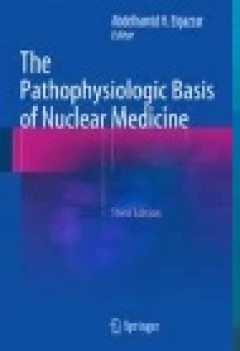
The Pathophysiologic Basis of Nuclear Medicine
This book, now in its third edition, aims to promote a deeper understanding of the scientific and clinical basis of nuclear medicine and the new directions in medical imaging. The new edition has been revised and updated to reflect recent changes and to ensure that the contents are in line with likely future directions. The book starts by providing essential information on general pathophysiolo…
- Edition
- -
- ISBN/ISSN
- 978-3-319-30771-8
- Collation
- XXI, 753
- Series Title
- -
- Call Number
- -
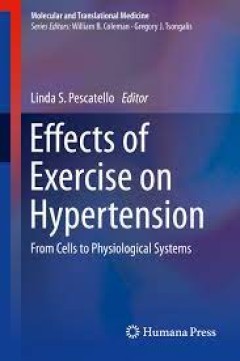
Effects of Exercise on Hypertension From Cells to Physiological Systems
As the first primer on the effects of exercise on human hypertension, Effects of Exercise on Hypertension: From Cells to Physiological Systems provides the state-of-the-art effects of exercise on the many possible mechanisms underlying essential hypertension in humans. The book contains chapters by distinguished experts on the effects of exercise on physiological systems known to be involved in…
- Edition
- -
- ISBN/ISSN
- 978-3-319-17076-3
- Collation
- -
- Series Title
- -
- Call Number
- -
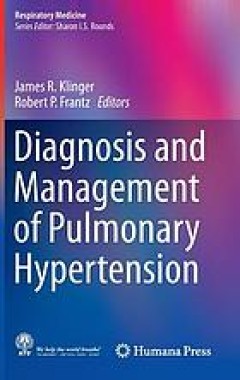
Diagnosis and Management of Pulmonary Hypertension
This book provides an overview of pulmonary hypertensive diseases, the current understanding of their pathobiology, and a contemporary approach to diagnosis and treatment. It discusses the definition and classification of these disorders and the epidemiology of pulmonary arterial hypertension (PAH); explores the approach to diagnosis and evaluation via methods such as echocardiography, right he…
- Edition
- -
- ISBN/ISSN
- 9781493926367
- Collation
- -
- Series Title
- -
- Call Number
- 616.1025
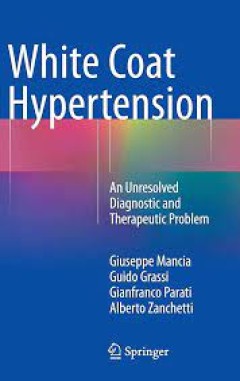
White Coat Hypertension An Unresolved Diagnostic and Therapeutic Proble
This book addresses all aspects of white coat hypertension – the phenomenon of raised blood pressure in a medical setting yet not elsewhere – from its history to its pathophysiology, diagnosis and treatment. White coat hypertension is a common condition, accounting for 30–40% of the overall hypertensive population. While many studies have addressed this condition, controversy still exists…
- Edition
- -
- ISBN/ISSN
- 978-3-319-07410-8
- Collation
- VIII, 147
- Series Title
- -
- Call Number
- -
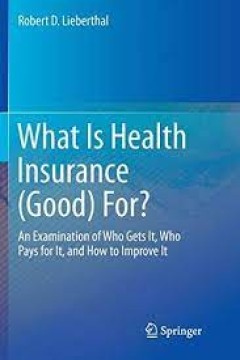
What Is Health Insurance (Good) For? An Examination of Who Gets It, Who Pays…
This informative volume synthesizes the literatures on health economics, risk management, and health services into a concise guide to the financial and social basics of health insurance with an eye to its wide-scale upgrade. Its scope takes in concepts of health capital, strengths and limitations of insurance models, the effectiveness of coverage and services, and the roles of healthcare provid…
- Edition
- -
- ISBN/ISSN
- 978-3-319-43796-5
- Collation
- XIII, 271
- Series Title
- -
- Call Number
- -

What Every Medical Writer Needs to Know Questions and Answers for the Seriou…
This book presents must-know facts generally not covered in “How To” books about medical writing. Every medical writer, whether a beginner or veteran, needs answers to questions many might not even know to ask. How does your personality type influence your writing behavior, and what can you do to make writing easier for you? What should you ask before agreeing to co-author an article for pu…
- Edition
- -
- ISBN/ISSN
- 978-3-319-20264-8
- Collation
- XXIII, 220
- Series Title
- -
- Call Number
- -
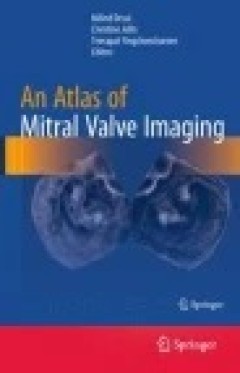
An Atlas of Mitral Valve Imaging
Valvular heart medicine revolves around the need to accurately identify locations of pathological structures and/or the interventional tools needed to manage that pathology. The imaging of the valves is developing at an enormous pace and the clinician must be aware of the advantages of each modality and how it compares to the others available. There is a need for a practical, clinical atlas des…
- Edition
- Ed. 1
- ISBN/ISSN
- 978-1-4471-6672-6
- Collation
- XXVII, 284
- Series Title
- -
- Call Number
- 616.12 ATL a
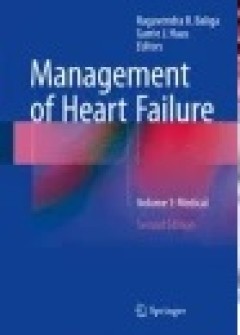
Management of Heart Failure: Volume 1: Medical
This new edition of Medical Management of Heart Failure will provide the full spectrum of medical options, ICU management and rehabilitation, while also prepare the reader for the second volume of Comprehensive Management of Heart Failure by introducing the surgical options in heart failure from transplant to the more noninvasive procedures in the interventional radiology department. The contri…
- Edition
- -
- ISBN/ISSN
- 978-1-4471-6657-3
- Collation
- -
- Series Title
- -
- Call Number
- -
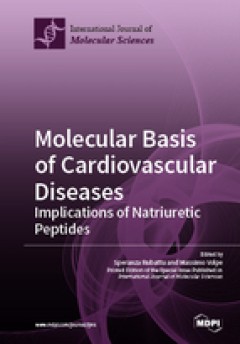
Molecular Basis of Cardiovascular Diseases : Implications of Natriuretic Pept…
The natriuretic peptides (NPs) family includes a class of hormones and their receptors needed for the physiological control of cardiovascular functions. The discovery of NPs provided a fundamental contribution into our understanding of the physiological regulation of blood pressure, and of heart and kidney functions. NPs have also been implicated in the pathogenesis of several cardiovascular di…
- Edition
- -
- ISBN/ISSN
- 978-3-03921-583-6
- Collation
- -
- Series Title
- -
- Call Number
- 616 MOL
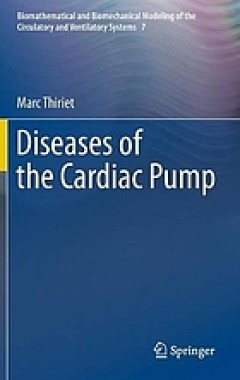
Diseases of the cardiac pump
Together, the volumes in this series present all of the data needed at various length scales for a multidisciplinary approach to modeling and simulation of flows in the cardiovascular and ventilatory systems, especially multiscale modeling and coupled simulations. The cardiovascular and respiratory systems are tightly coupled, as their primary function is to supply oxygen to and remove carbon d…
- Edition
- -
- ISBN/ISSN
- 9783319126647
- Collation
- xvi, 631 pages
- Series Title
- -
- Call Number
- 616.12
 Computer Science, Information & General Works
Computer Science, Information & General Works  Philosophy & Psychology
Philosophy & Psychology  Religion
Religion  Social Sciences
Social Sciences  Language
Language  Pure Science
Pure Science  Applied Sciences
Applied Sciences  Art & Recreation
Art & Recreation  Literature
Literature  History & Geography
History & Geography